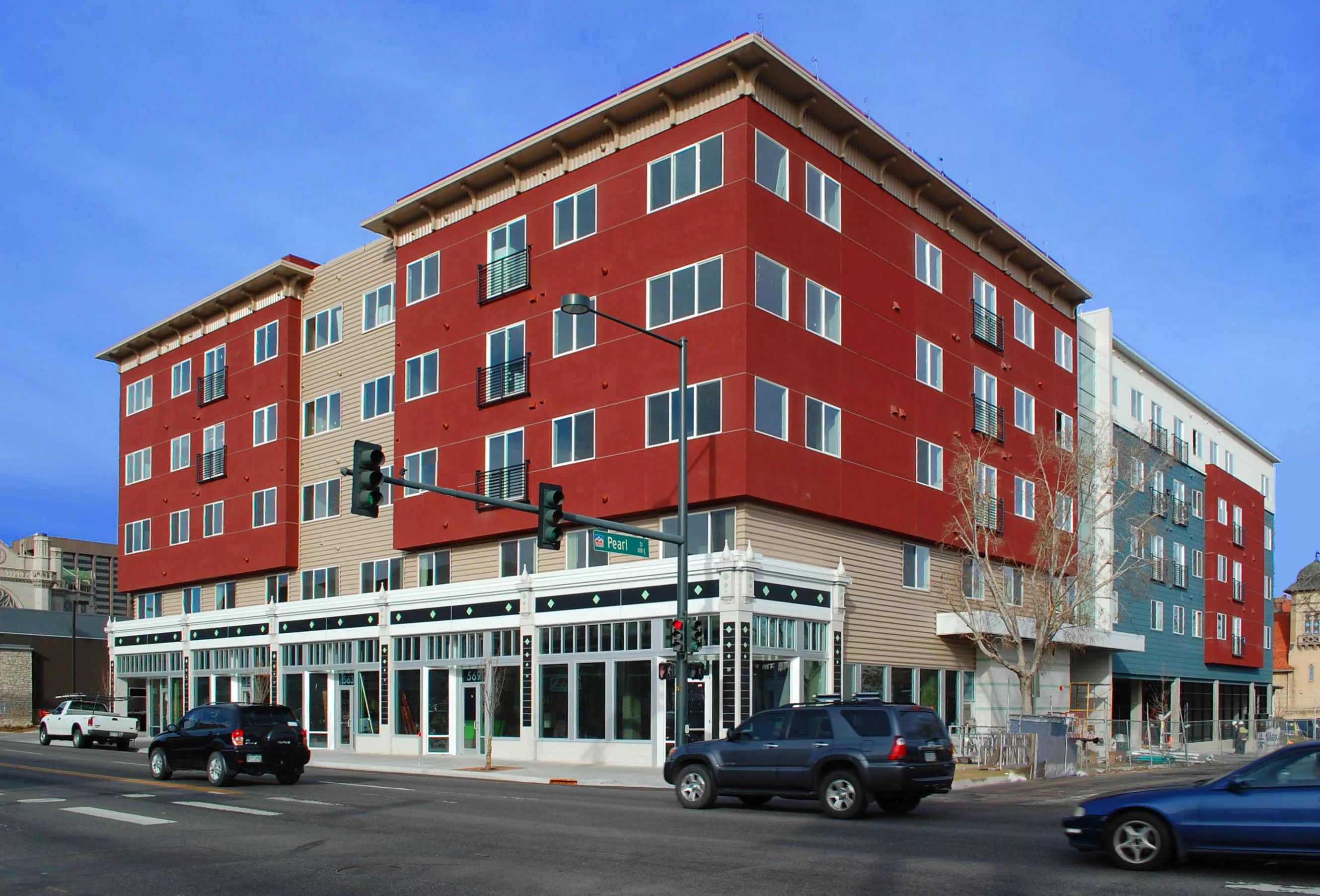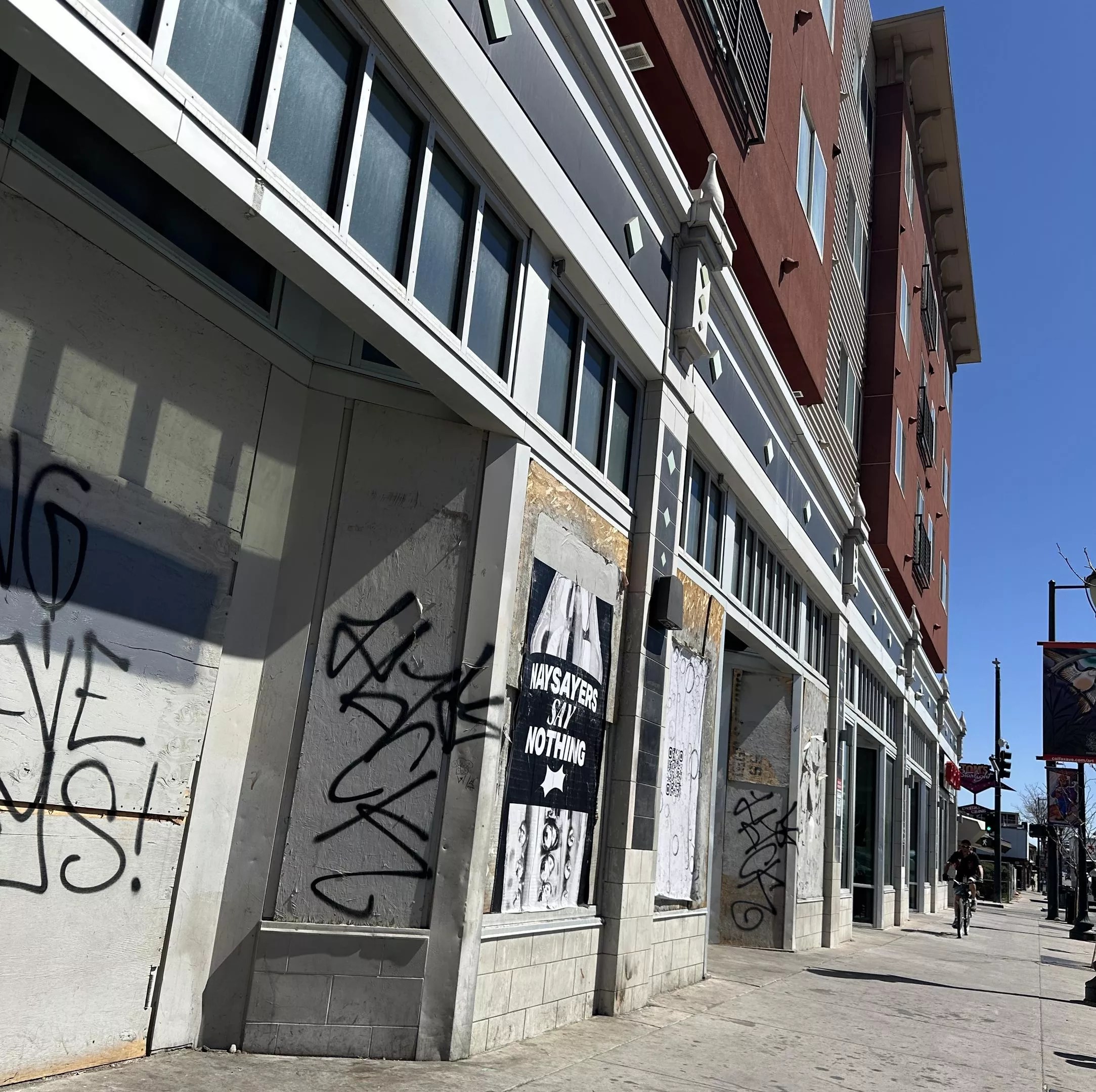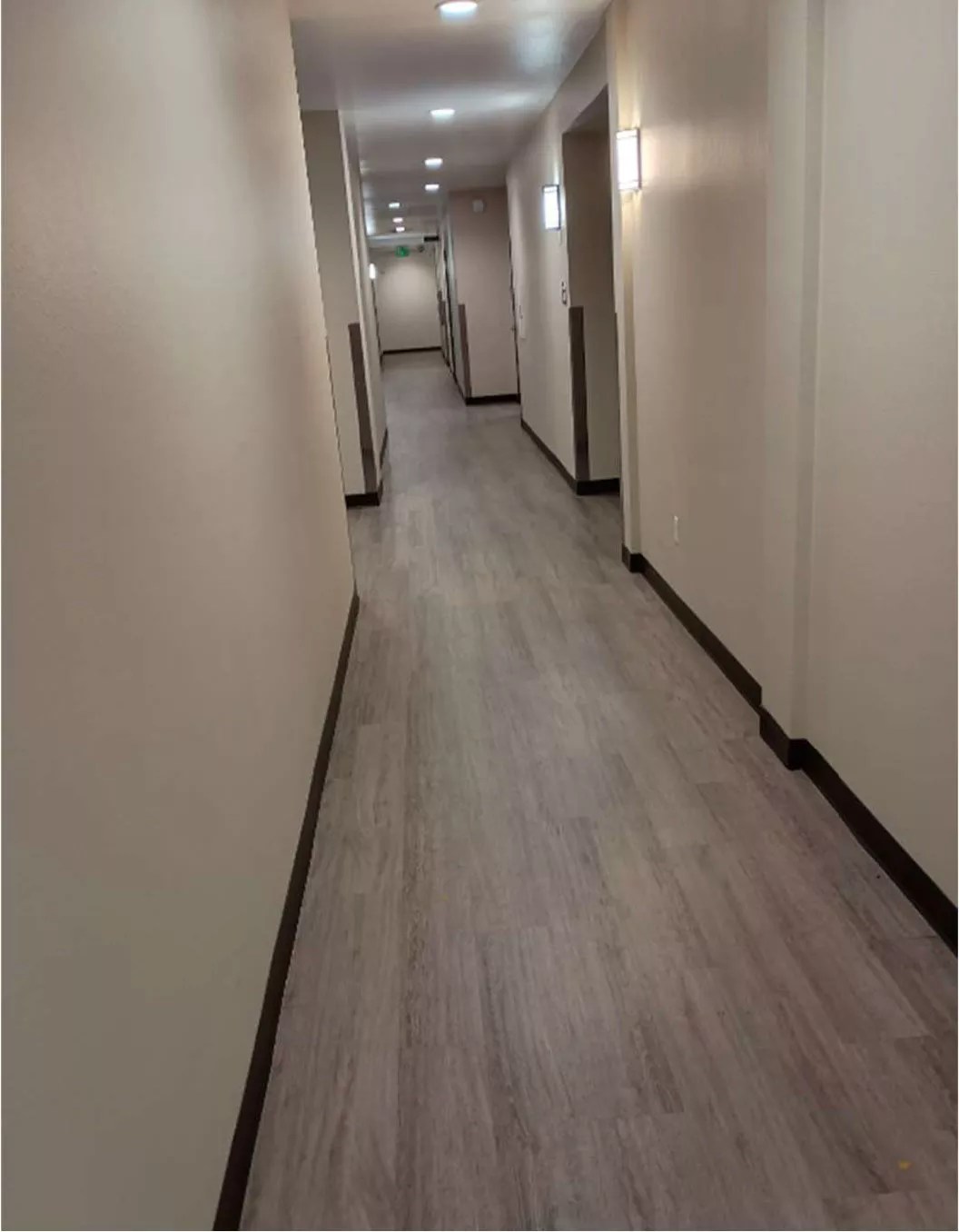
Colorado Coalition for the Homeless

Audio By Carbonatix
Homeless services providers around Denver have been getting a bad rap lately.
Lax security, violence and poor conditions at city shelters and supportive-housing buildings have grabbed numerous headlines over the past few months, with residents complaining about safety and quality of life.
The former DoubleTree hotel at 4040 Quebec Street – now run by the Salvation Army – was converted to a homeless shelter in December 2023 and has since become the site of murders, assaults, overdoses, trespassing and other crimes, according to reports.
That same month, residents at the Renaissance Uptown Lofts, an affordable-housing building operated by the Colorado Coalition for the Homeless on Pearl Street near East Colfax Avenue, came forward and complained about their situation to CBS News. According to the report, the place was overrun with unhoused residents and felt more like a shelter than an apartment building. People also complained about a terrible bug infestation, according to cops and former tenants.
But rather than let the Uptown Lofts fall further into squalor, CCH officials decided to do something about it.
“We’ve tried to be as responsive to the residents and their concerns as possible,” says Cathy Alderman, chief communications and public policy officer for CCH. “We started repairs in February and are just finishing up. … Repairs included carpet replacement [with vinyl], vandal-proofing the elevators, full building pest control [one-time and now ongoing], a new office in the lobby, access doors to new space, and new garage doors.”
And that’s not all that CCH is doing.
The organization is looking to fill the empty space at 551 East Colfax underneath the apartments, previously home to a 7-Eleven, with either another business or renovated office space for case management and employment vocational services.

The 7-Eleven at 551 East Colfax was closed after the COVID-19 pandemic.
Chris Perez
“We’ve had a few business inquiries about it, and we want to work with a broker to make the right call on it,” Alderman says. “If we find someone who wants to rent that space and turn it into something, then we can plan for potential revenue. But if we turn it into offices and case management services, that will be something we will likely have to absorb.”
While costs always weigh heavy on the minds of nonprofits, CCH knows the importance of building a positive culture around East Colfax.
“We know that this has been a troubled area in Denver for a long time,” Alderman notes. “There’s a lot of closed businesses, there’s a lot of criminal activity. And what we are looking at right now is, how can we be a good community member, and who do we need to be connecting with to say, ‘We all have some responsibility to make sure that this is a safe and welcoming place in Denver.’ It used to be, and it can be again.”
Like any nonprofit, Alderman says, CCH does not have a lot of extra funds lying around, but the project isn’t financially impossible.
“It’s a balance and calculation we’ll have to make,” Alderman says of what to do with the empty space below the Uptown Lofts and the building itself.
“That’s a building that we’ve owned and operated that we built, actually, from the ground up. Obviously, during the pandemic and during the [George Floyd] protests, there was just a lot of damage that happened to that 7-Eleven building, and they eventually decided to vacate that property. And so now we want to look at how to convert it and use it to better meet the needs of residents and clients and people experiencing homelessness.”
According to a CCH financial report from 2022, the organization brought in almost $127 million in “operating revenues and support,” including over $13.6 million in contributions and grants, nearly $67 million in contracts and grants, about $31.4 million in “program income,” almost $10.4 million in interest and investment income, and about $4.5 million in “other and in-kind revenue.” Its operating expenses that year were about $106.4 million, leaving more than $20.5 million left over.
A report on CCH’s 2023 finances will be released later this year.
In total, it cost CCH over $240,000 to renovate the Uptown Lofts, with ongoing security costs and pest control running up a tab of $60,000 per month. The nonprofit paid for the updates directly through a loan from its 501(c)(3) organization to the CCH Property Management Department, and did not get a grant or private funding for it, Alderman says.
“After ten to fifteen years, things need to refresh,” she says. “And when you are a for-profit company, you have revenue and you can invest it. When you’re nonprofit, you have to find other sources – and that’s what we’ve been trying to do, is look for those other funding sources to make sure that we can keep our properties up to par. Of course, we keep them up to code, but we also want them to be comfortable, livable, welcoming places.”
In addition to East Colfax, CCH is hoping to change the culture around the upkeep of affordable and supportive housing in Denver as a whole, with Alderman stressing the need for continued funding and attention across a building’s entire life span, not just when it’s getting up and running.
“Most of the properties that we build, we build with federal [or] state funding,” Alderman explains. “They are subsidized affordable-housing units, and unfortunately, those funding sources don’t come with renovation funds. And this is true, I think, for a lot of low-income housing tax credit properties.”
Chas Richardson is a leader at the Denver Dream Center, another homeless service provider. He used to come to the Uptown Lofts a lot over the years to see friends and acquaintances, telling Westword that the difference is “night and day” from what it used to be.

One of the biggest changes to the Uptown Lofts was removing carpet and replacing it with vinyl to prevent bugs and grime.
Colorado Coalition for the Homeless
“I used to be one of the people who would come see people over here because I was messing with a lot of folks doing the drug dealing and taking over people’s apartments and stuff,” he admits. “It was bad.”
Richardson says things reached a turning point in late 2023, when residents finally said enough is enough and went public with their stories after forming a “residents’ council” and meeting with CCH officials through coordinated efforts with the Denver Police Department.
“They meet regularly and talk about safety issues, they talk about cosmetic issues, they talk about behavior issues,” Alderman explains. “They also express their needs…and it’s really intended to kind of create a good open space for folks to say how they want to live as a community.”
DPD District 6 community resource officer Kayla Knabe, who made Crime Prevention Through Environmental Design (CPTED) recommendations last year for the building, became part of the push to clean up the Uptown Lofts after meeting residents and hearing about their situation.
“This was definitely a huge project for me,” Knabe says. “I’ve developed such a good relationship with these folks, and I really care about them, and I want them to have pride and feel safe in the place that they live.”
According to Knabe, the DPD was contacted by residents who were upset about crime in the area and the building’s safety conditions.
“We came to their meetings, and it was rough,” she recalls. “It was a rough start. Everyone just wanted to yell. But we kept coming back and developed a great relationship with the residents here, helped them establish the resident council with some rules, some structure, and started giving them some roles and responsibilities and started educating them.”
Over time, the residents began requesting repairs and increased security to block off access to the parking garage so they’d have a more secure way in and out of the building – repairs that have since been implemented. In the past, people were constantly blocking the entry and exit doors for the Uptown Lofts, which also led to safety issues, according to Knabe and Alderman.
“We’ve really tried to be as responsive to the residents as possible over the last year or so,” Alderman says. “It’s important for us to listen to the residents and hear what the concerns are, and then make the investments to make the property safe and clean and welcoming.”
In order to keep maintaining CCH properties and continue improvement, Alderman notes how investments need to be made over and over, both big and small.
“Replacing things like carpets and paints,” she says. “Really being intentional about it.”
Another CCH-operated property the organization has been monitoring closely is Fusion Studios, at 3737 Quebec Street, which has been in the news over resident complaints about safety and access to services. The hotel-turned-affordable-housing building opened in 2020 and has reportedly seen an average of 500 calls to the DPD each year since opening; complaints about bugs and noise have also been a big issue.
“We’ve got a team focused on how we could prevent this,” Alderman says. “We’ve been intentionally saying, ‘Let’s find the funding and make this a priority, because we serve people’s homes.'”
Over at the Renaissance Off Broadway Lofts, at 2135 Stout Street, CCH officials managed to get all the funding they needed to renovate and clean things up, according to Alderman.
“We were able to get funding from the state to do updates and rehabs,” she says. “We’ve just recently finished those renovations.”
CCH hopes its work to update properties serves as an example for other service providers in treatment and approaches toward homelessness and supportive housing, even when a group or property has fallen short in the past.
“It’s not enough just to give somebody a key and tell them to go be inside,” Alderman says. “You’ve got to renovate and provide those support services; you’ve got to make people understand that this is their home, and they should do things to make it feel like their home.”